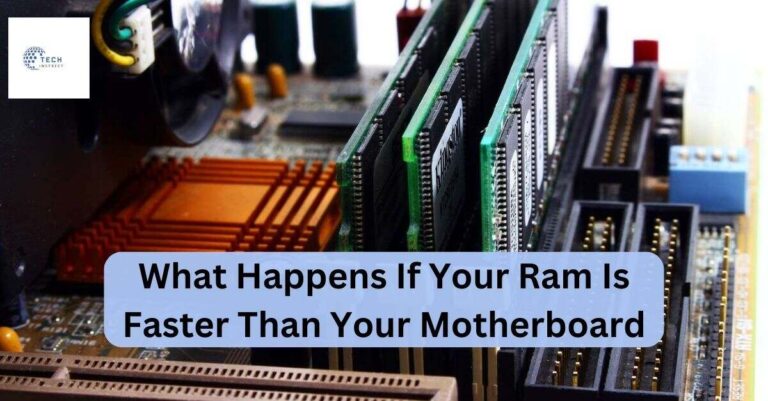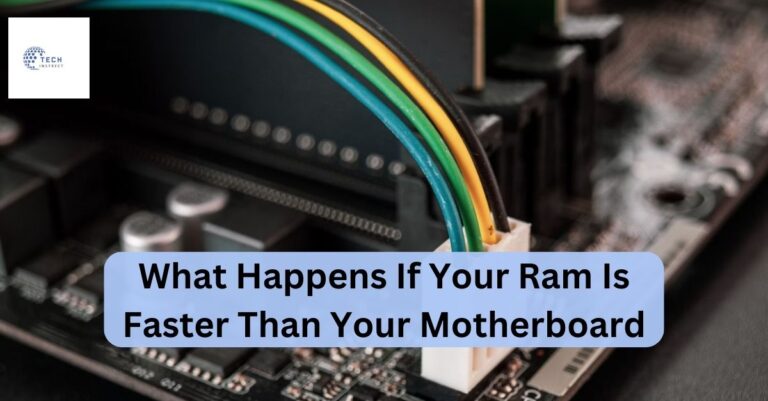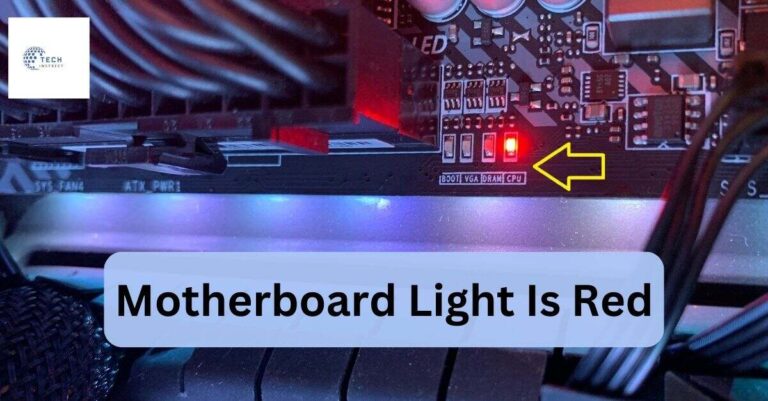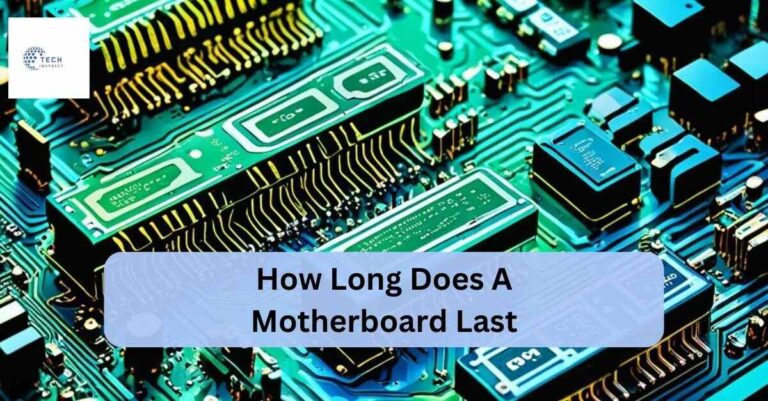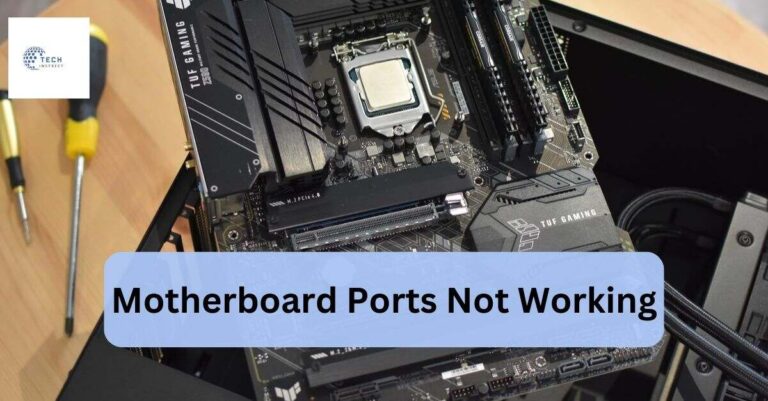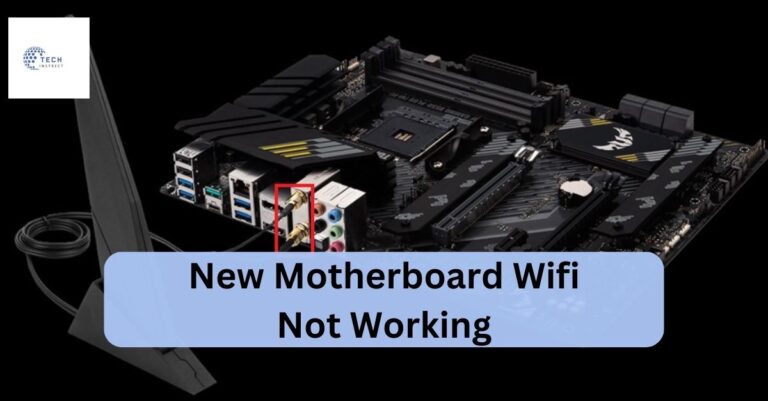Can Motherboards Bottleneck – A Comprehensive Guide!
“Yes, motherboards can bottleneck a computer’s performance if they have poor power delivery, limited PCIe lanes, or outdated components.”
The article discusses how motherboards can bottleneck a computer’s performance through factors like power delivery, PCIe lanes, and chipset compatibility. It also explains how these aspects can impact gaming and productivity tasks.
Additionally, the article provides guidance on selecting a motherboard to avoid potential bottlenecks and ensure optimal performance.
What Is A Bottleneck?
A bottleneck happens when one part of the system slows down the entire computer. This can occur when a component cannot handle the demands placed on it by other parts.
In PCs, bottlenecks are often linked to the CPU and GPU, but the motherboard(Can Motherboards Bottleneck) can also play a significant role.

Motherboard Architecture And Performance!
Chipset And Compatibility:
The chipset on a motherboard determines which CPUs, GPUs, and other components it can work with. High-end chipsets offer more features and better performance.
For example, a high-end chipset like the Intel Z590 or AMD X570 supports the latest processors, faster memory, and advanced connectivity options.
Using a motherboard with an old or low-end chipset can limit the performance of modern components, leading to a bottleneck.
Power Delivery:
Modern CPUs and GPUs need a lot of power, and the power delivery system of a motherboard is critical for providing stable and efficient power. Voltage Regulator Modules (VRMs) are key to this.
High-quality VRMs provide clean and stable power, which is essential for overclocking and maintaining performance under heavy loads. Poor quality VRMs can cause instability and limit the potential of high-performance components.
PCIe Lanes:
PCIe (Peripheral Component Interconnect Express) lanes are used to connect GPUs, SSDs, and other expansion cards. The number and version of PCIe lanes can significantly impact performance.
For example, a motherboard(Can Motherboards Bottleneck) with PCIe 4.0 support offers double the bandwidth of PCIe 3.0. If a motherboard has limited PCIe lanes, it can restrict the bandwidth available to connected components, causing a bottleneck.
Memory Support:
Memory, or RAM, is crucial for overall system performance. Motherboards determine the type and amount of RAM you can use. High-end motherboards support faster memory speeds and higher capacities.
For example, a motherboard that supports DDR4-3600 or DDR5 memory can provide better performance in memory-intensive tasks compared to one that supports only slower memory speeds.
Insufficient or slow memory can become a bottleneck, especially in applications that require large amounts of data to be processed quickly.
Storage Interfaces:
The speed and type of storage interfaces available on a motherboard can also affect system performance. NVMe SSDs connected via M.2 slots provide much faster data transfer rates compared to traditional SATA SSDs.
Motherboards with multiple M.2 slots and support for RAID configurations can offer improved performance and data redundancy.
A motherboard(Can Motherboards Bottleneck) that only supports older storage standards can limit the performance benefits of modern high-speed SSDs, leading to a bottleneck in data-intensive applications.
Network Connectivity:
Network connectivity is another area where the motherboard can impact performance. High-end motherboards often come with advanced networking features such as 2.5GbE or 10GbE Ethernet, as well as the latest Wi-Fi 6 or Wi-Fi 6E standards.
These features can significantly improve network performance, especially in environments with high network traffic or where low latency is crucial.
A motherboard(Can Motherboards Bottleneck) with outdated network standards can limit the performance of your internet connection or local network, becoming a bottleneck in online gaming, streaming, or large file transfers.
Impact On Gaming And Productivity!
Gaming Performance:
In gaming, the GPU is often the most important component, but the motherboard can influence performance as well. A motherboard with limited PCIe lanes or poor power delivery can restrict the GPU’s performance.
Additionally, the BIOS and firmware optimizations provided by the motherboard manufacturer can impact gaming performance. High-end motherboards(Can Motherboards Bottleneck) typically offer better BIOS features and more stable overclocking, leading to improved gaming experiences.
Productivity Tasks:
For productivity tasks such as video editing, 3D rendering, and software development, the motherboard’s support for high-speed memory and multiple expansion cards is crucial.
Tasks that involve large data transfers or heavy computational workloads benefit from motherboards with robust power delivery and advanced connectivity options. A motherboard that supports faster RAM and more PCIe lanes can significantly improve productivity.
Future-Proofing Your Build!
Upgradability:
Choosing a motherboard with future-proof features can save you from needing frequent upgrades.
Look for motherboards that support the latest standards, such as DDR5 memory and PCIe 5.0. These features ensure compatibility with future components, preventing bottlenecks down the line.
BIOS Updates:
Motherboard manufacturers regularly release BIOS updates to improve compatibility and performance. A motherboard(Can Motherboards Bottleneck) with a strong track record of updates can extend the lifespan of your build by supporting new CPUs and other components.
Ensure that the motherboard you choose has a reliable update history to avoid potential bottlenecks caused by outdated firmware.
Selecting The Right Motherboard!
Identify Your Needs:
Understanding your specific needs is the first step in selecting the right motherboard. Are you building a gaming rig, a workstation for video editing, or a general-purpose PC? Each use case has different requirements.
For gaming, focus on motherboards with strong GPU support, overclocking capabilities, and high-speed RAM. For productivity tasks, prioritize motherboards(Can Motherboards Bottleneck) with robust power delivery, high memory capacity, and multiple PCIe slots.

Research And Reviews:
Before making a purchase, it’s essential to research and read reviews from reputable sources. User reviews and expert opinions can provide insights into the real-world performance and reliability of a motherboard.
Pay attention to common issues reported by users, such as BIOS problems, VRM quality, and compatibility issues. A motherboard(Can Motherboards Bottleneck) with a good reputation and positive reviews is more likely to deliver consistent performance without bottlenecks.
Budget Considerations:
While high-end motherboards offer numerous features and performance benefits, they can be expensive. Determine your budget and find a motherboard that offers the best balance of features and performance within that budget.
Mid-range motherboards(Can Motherboards Bottleneck) often provide excellent value, with many of the features of high-end boards at a lower price point. Avoid the temptation to overspend on features you may not need, but also be wary of cutting costs too much, as this can lead to performance limitations.
Brand And Warranty:
Choosing a reputable brand with a solid warranty can provide peace of mind and support in case of issues. Brands like ASUS, MSI, Gigabyte, and ASRock are well-known for producing reliable motherboards with good customer support.
A strong warranty can protect your investment and ensure that you receive assistance if your motherboard experiences problems.
Common Misconceptions About Motherboards and Bottlenecks!
Motherboards Don’t Affect Gaming Performance:
One common misconception is that motherboards do not affect gaming performance. While the impact may not be as direct as the GPU or CPU, the motherboard’s quality can still influence the overall gaming experience.
Issues with power delivery, PCIe lane distribution, and BIOS stability can all lead to performance drops or instability during gaming sessions.

All Motherboards Are The Same:
Another misconception is that all motherboards are essentially the same and that any differences are negligible.
This is far from the truth. Differences in chipsets, VRM quality, memory support, and expansion capabilities can all significantly impact the performance and stability of your system.
Cheaper Motherboards Are Always Worse:
While it is true that very cheap motherboards often cut corners on features and quality, this does not mean that all budget motherboards are bad.
Many mid-range motherboards(Can Motherboards Bottleneck) offer excellent performance and features at a reasonable price. It’s essential to balance cost with the specific needs of your build.
Real-World Examples Of Motherboard Bottlenecks!
Example 1 ~ Overclocking Limits:
Consider a scenario where a user wants to overclock their high-end CPU. A motherboard with weak VRMs may not be able to provide the necessary stable power, leading to crashes or inability to achieve higher overclock speeds. In this case, the motherboard is bottlenecking the performance of the CPU.
Example 2 ~ GPU Performance:
In another example, a user might have a high-end GPU but an older motherboard with PCIe 2.0 slots. The limited bandwidth of PCIe 2.0 compared to PCIe 3.0 or 4.0 can restrict the data flow to the GPU, causing lower frame rates in games. Here, the motherboard is bottlenecking the GPU performance.
Example 3 ~ Storage Speed:
A user with fast NVMe SSDs may find that their older motherboard does not support these drives or only supports them at lower speeds.
This can lead to slower boot times and longer load times for applications and games, illustrating how the motherboard can bottleneck storage performance.
FAQs:
Can A Motherboard Bottleneck A Cpu?
Yes, a motherboard with poor power delivery or an outdated chipset can limit a CPU’s performance.
How Do Pcie Lanes Affect Performance?
Limited PCIe lanes can restrict data transfer between components, causing a performance bottleneck.
Does Memory Speed Matter For Motherboards?
Yes, motherboards that support faster memory speeds can improve overall system performance, especially in data-intensive tasks.
Is A High-End Motherboard Necessary For Gaming?
While not always necessary, a high-end motherboard can provide better power delivery and overclocking support, enhancing gaming performance.
Can Outdated Network Standards On A Motherboard Cause Issues?
Yes, a motherboard with outdated network standards can limit internet and local network performance, affecting online gaming and streaming.
Conclusion:
While the motherboard might not be the first component that comes to mind when considering performance bottlenecks, its role is undeniably critical.
The chipset, power delivery system, PCIe lanes, and overall architecture can all influence the performance of your PC.
Choosing a high-quality motherboard with the right features can prevent bottlenecks and ensure that your system performs optimally, both now and in the future.




